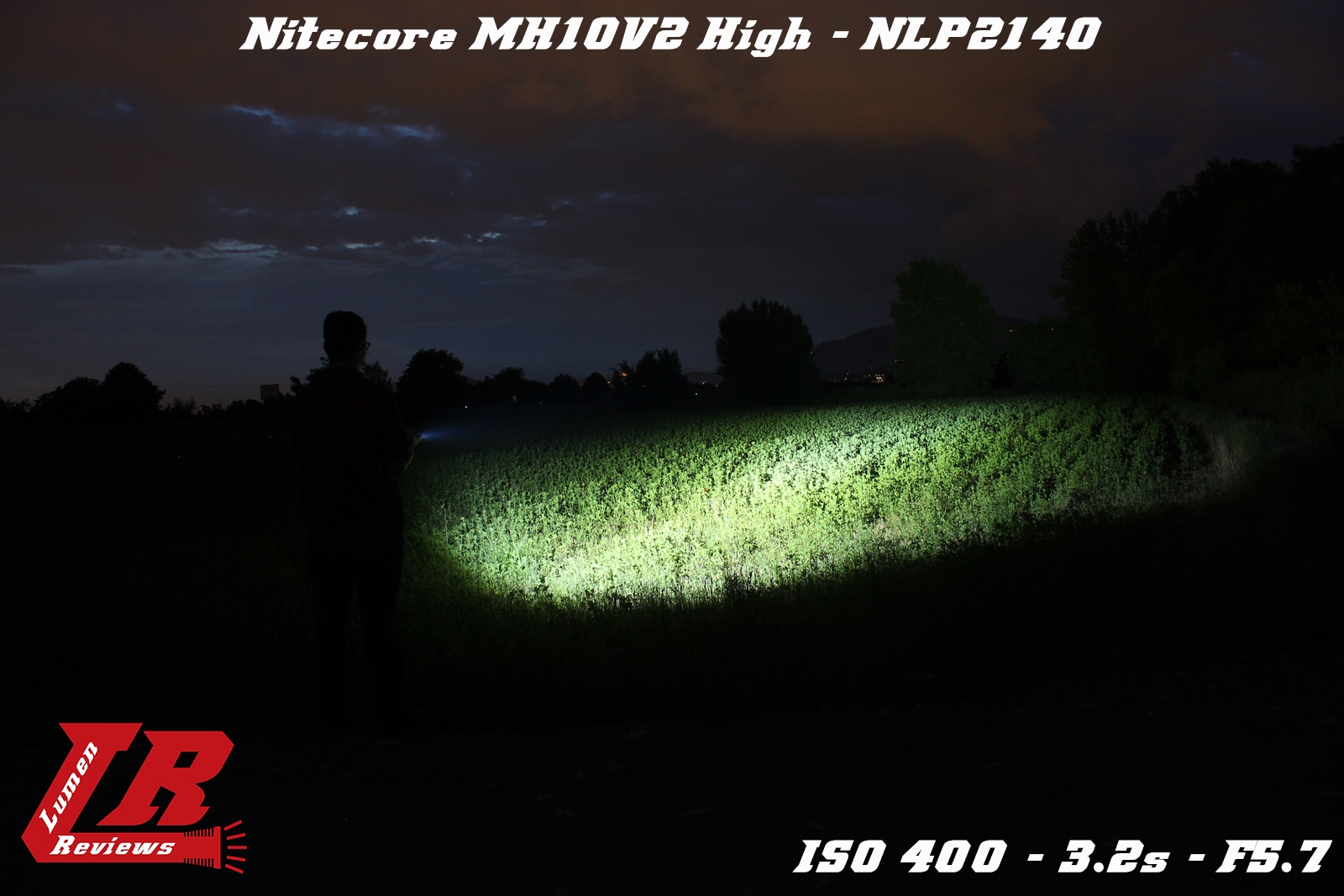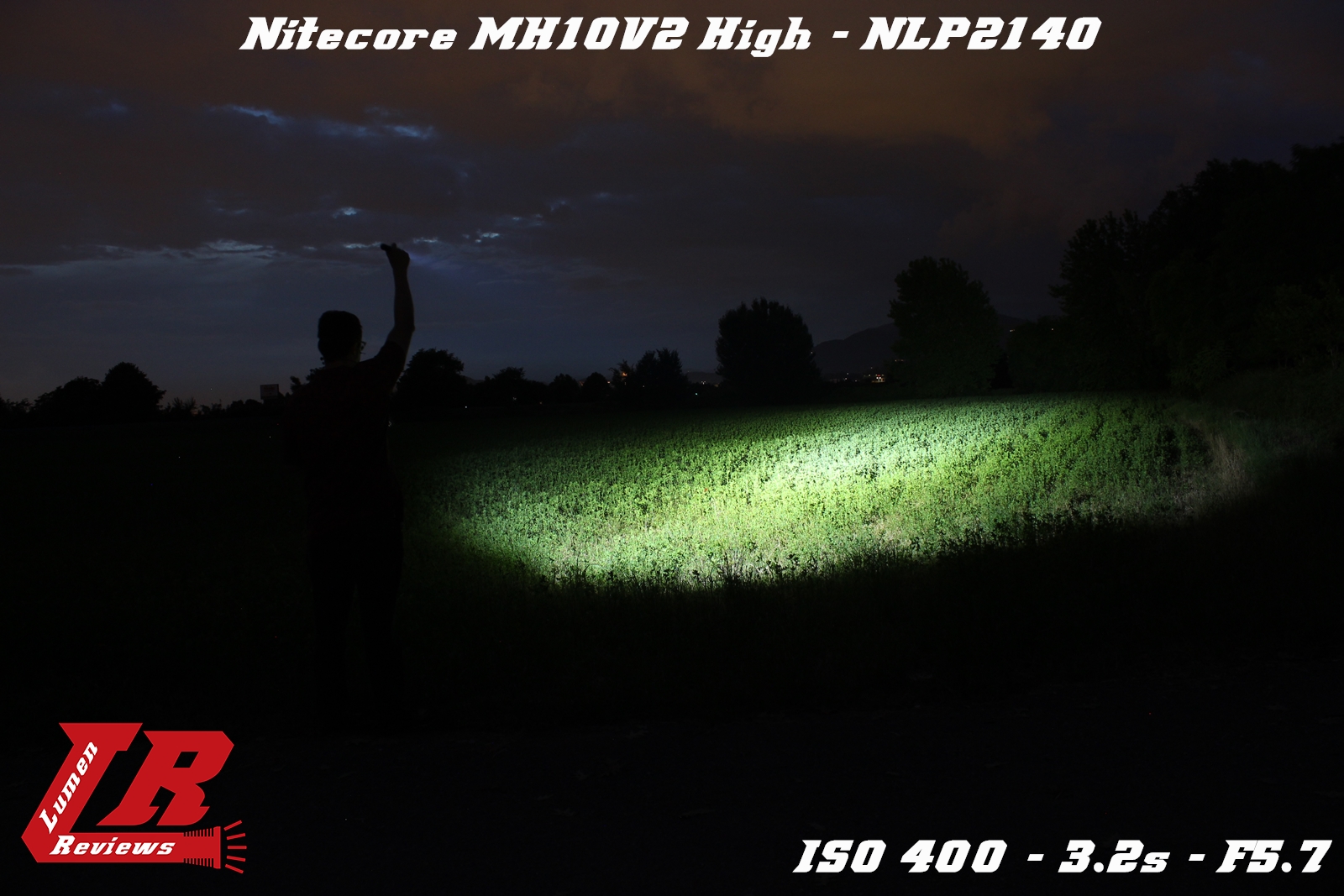I received the MH10V2 from Nitecore for the review
The MH10 v2 is a tactical flashlight, equipped with a XP-L2 V6 Cool White emitter, powered by a 21700 battery. The MH10 v2 allows you to charge the battery inside the light though a USB-C port.
The MH10 comes in this box, with holster, clip, manual, spare o-rings, 18650-CR123 adapter and Nitecore NL2140 (a 4000mAh 21700 battery with protection circuit).
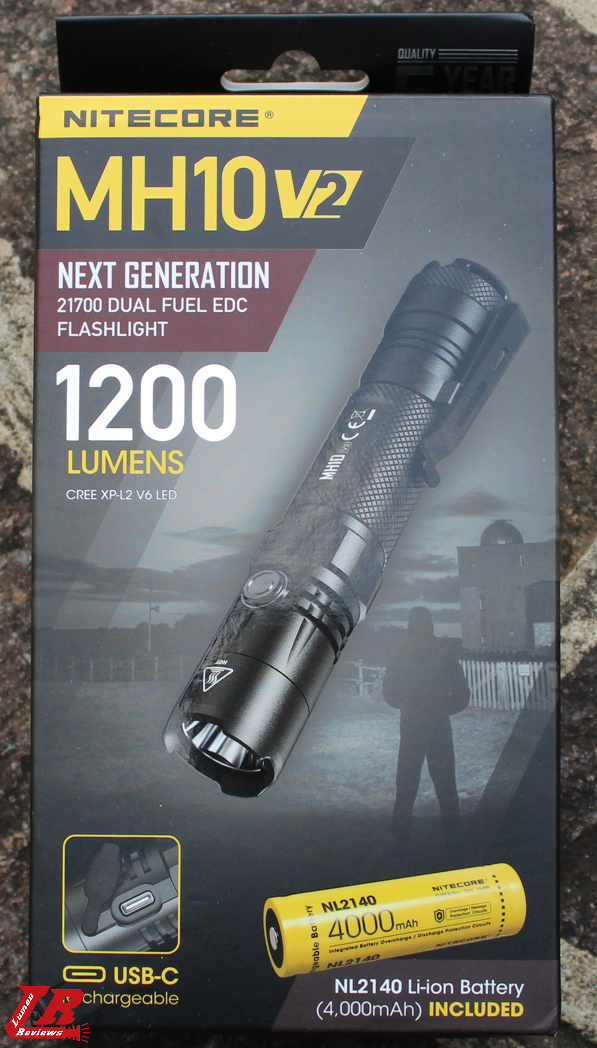
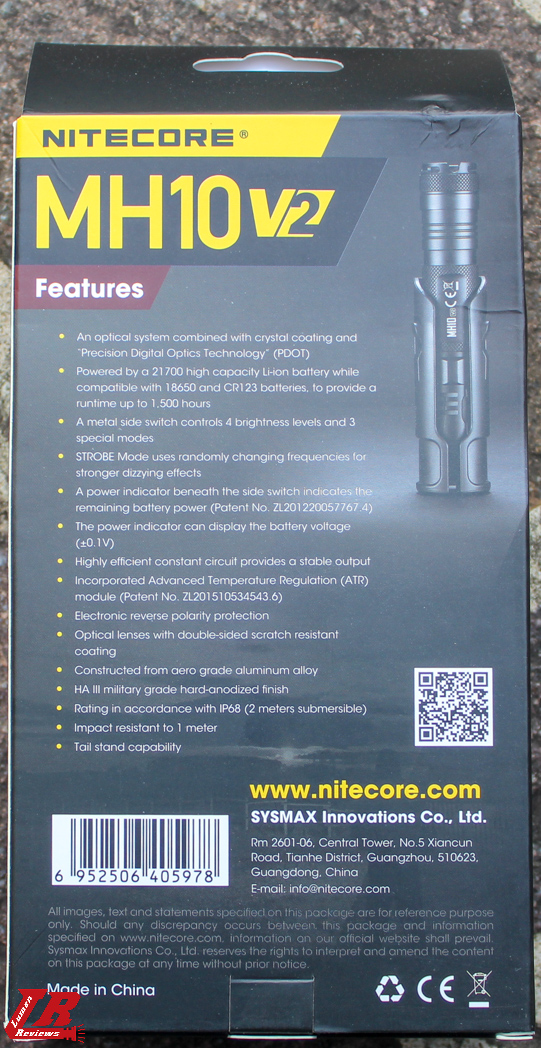
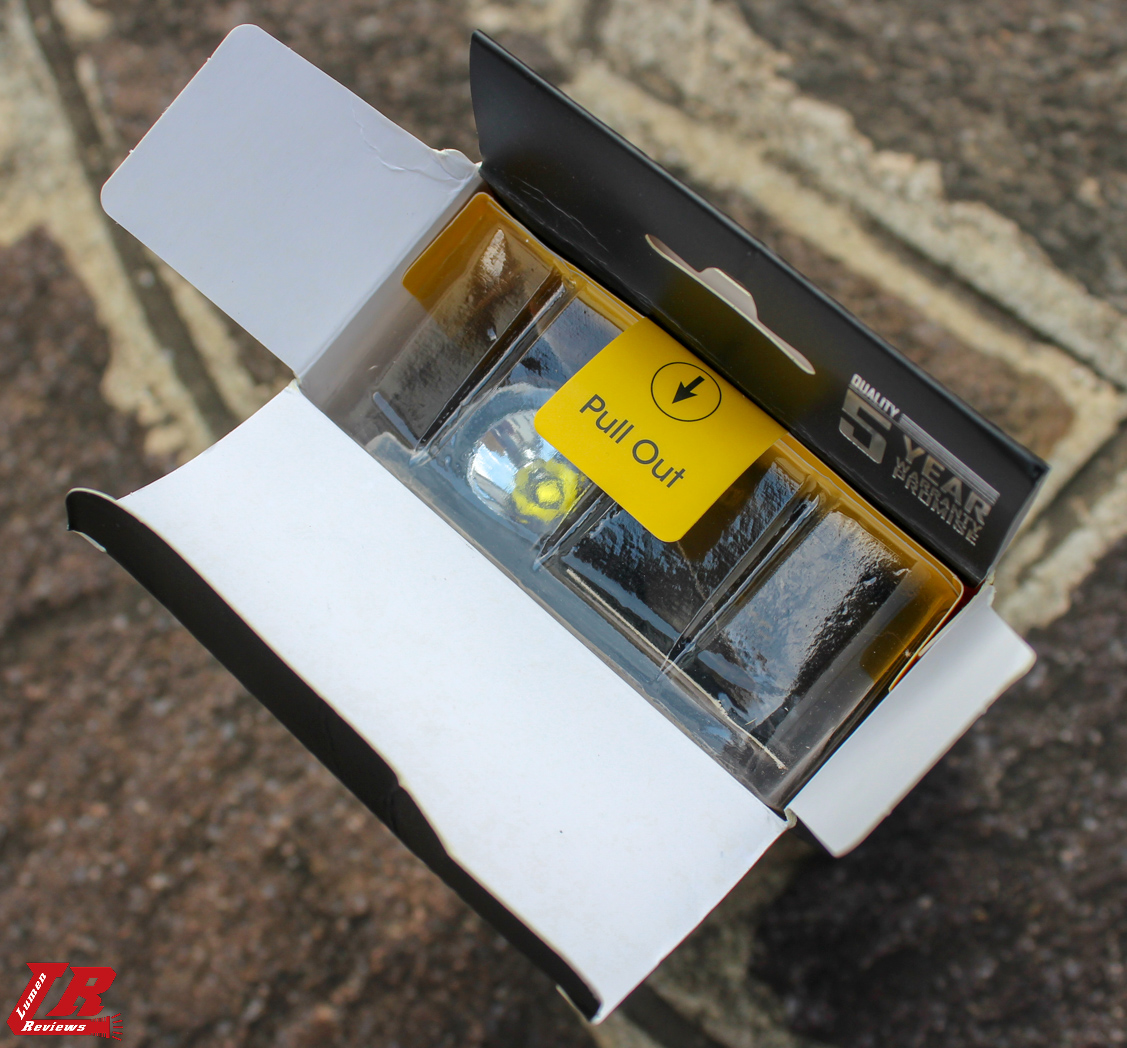
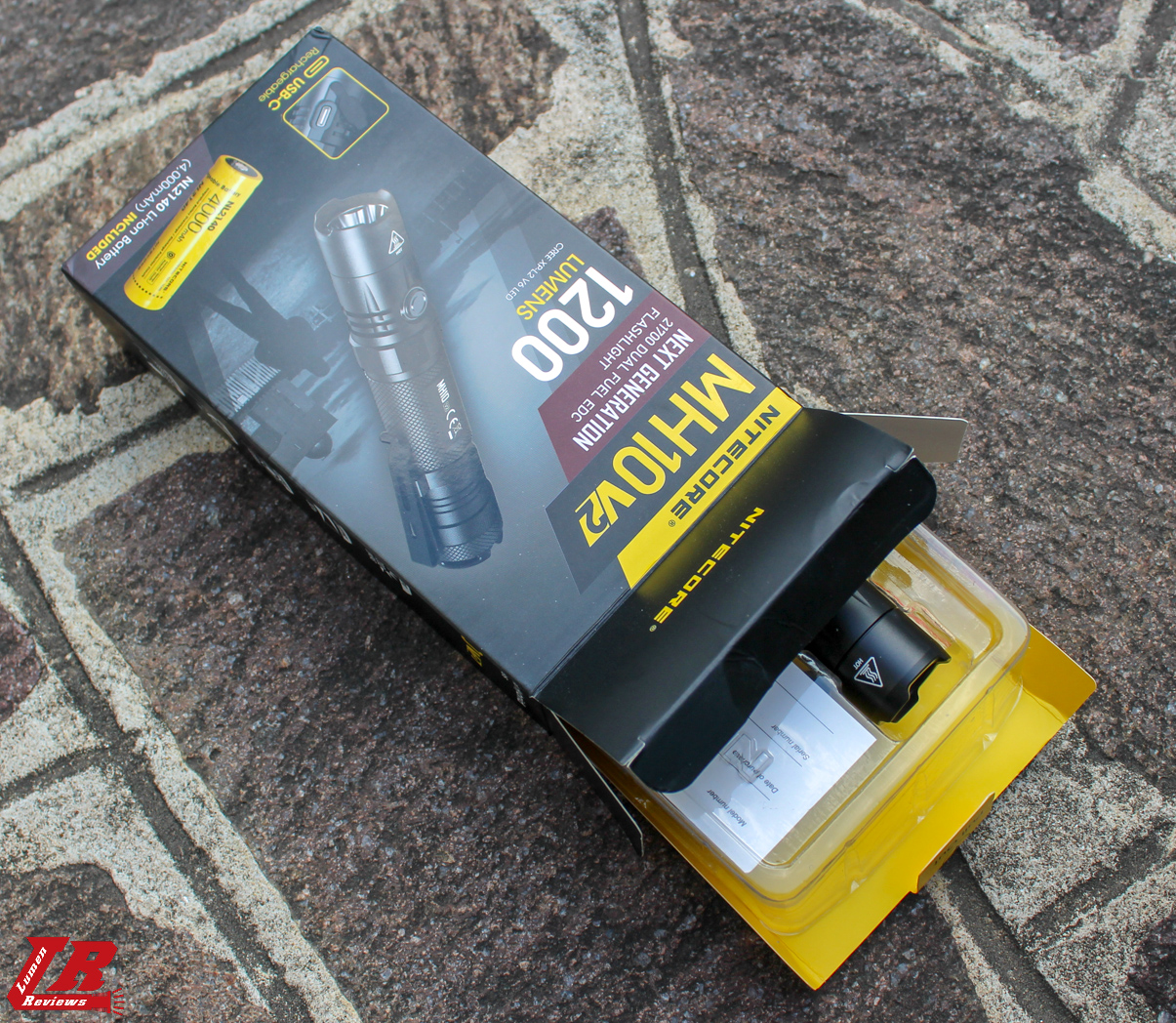
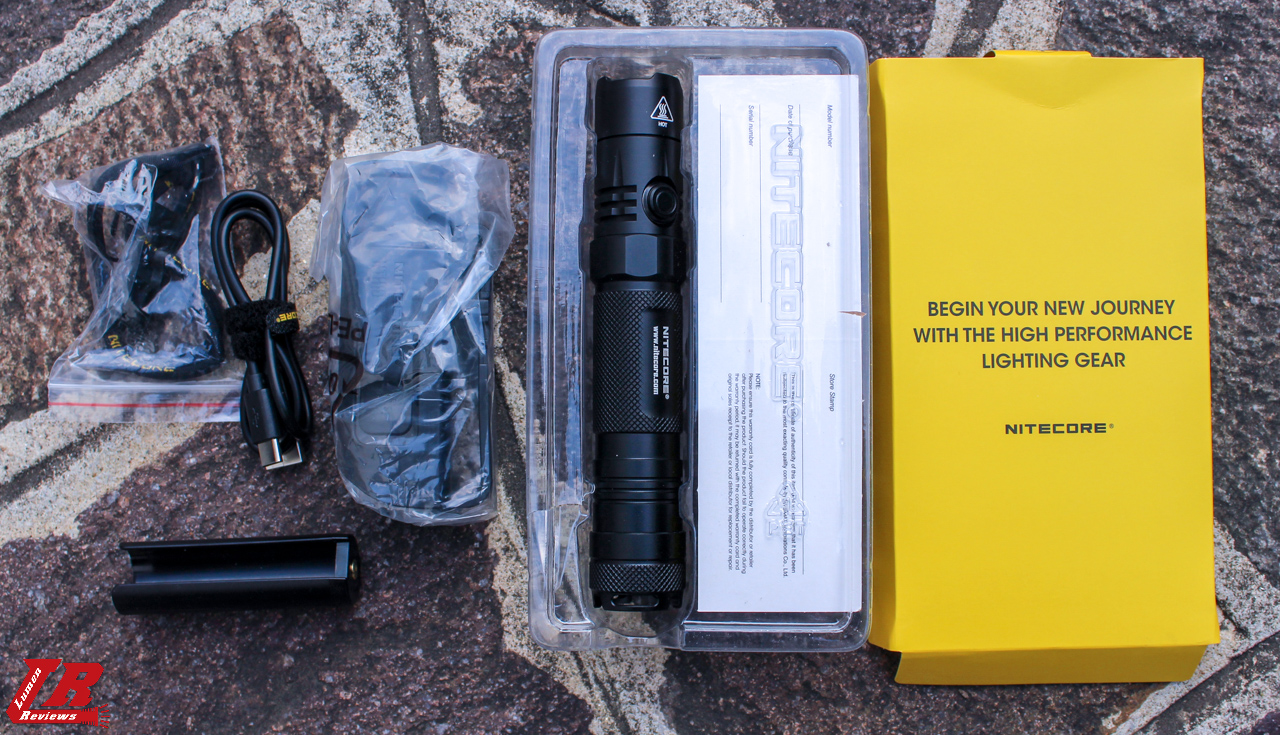
The MH10 V2 measures 147 mm in length by 25 mm in width. The weight is 79g empty, and the included battery weights 73 grams, for a total of 152 grams.
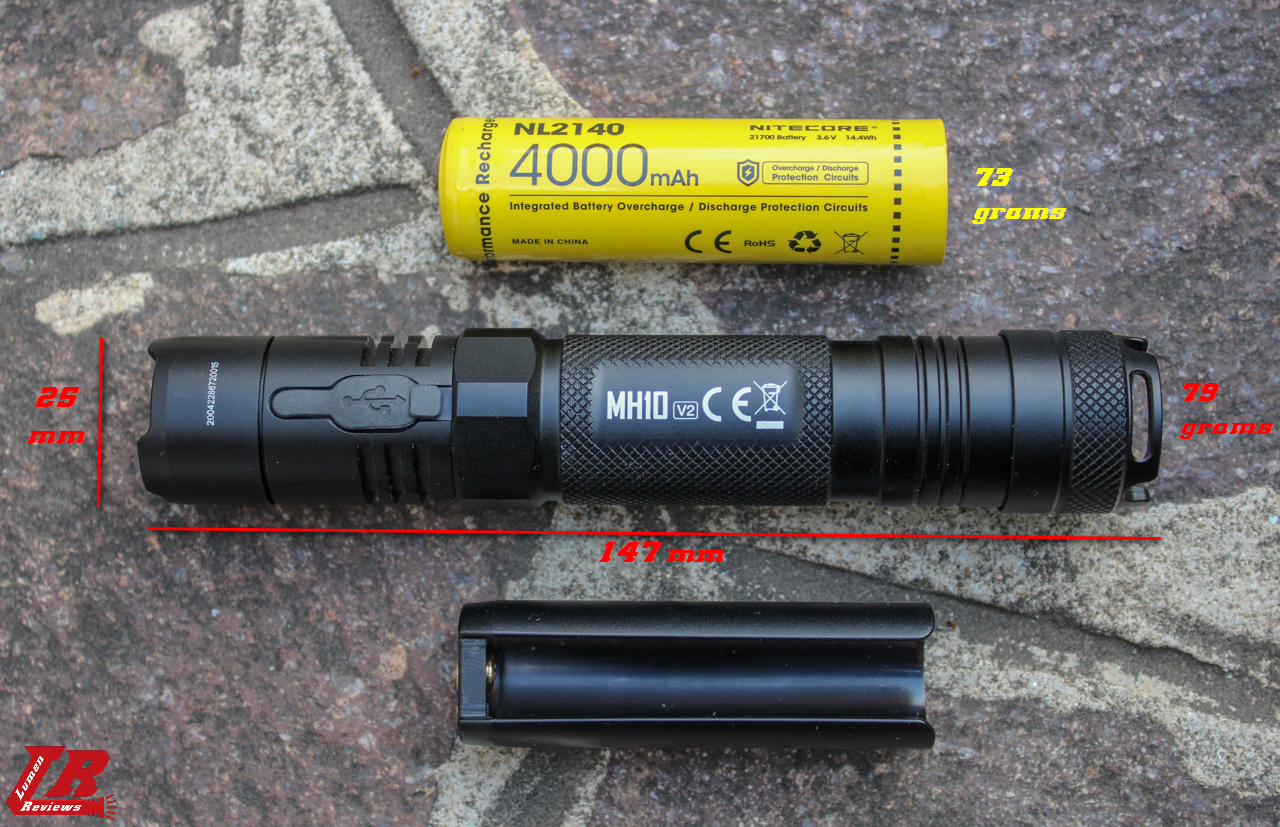
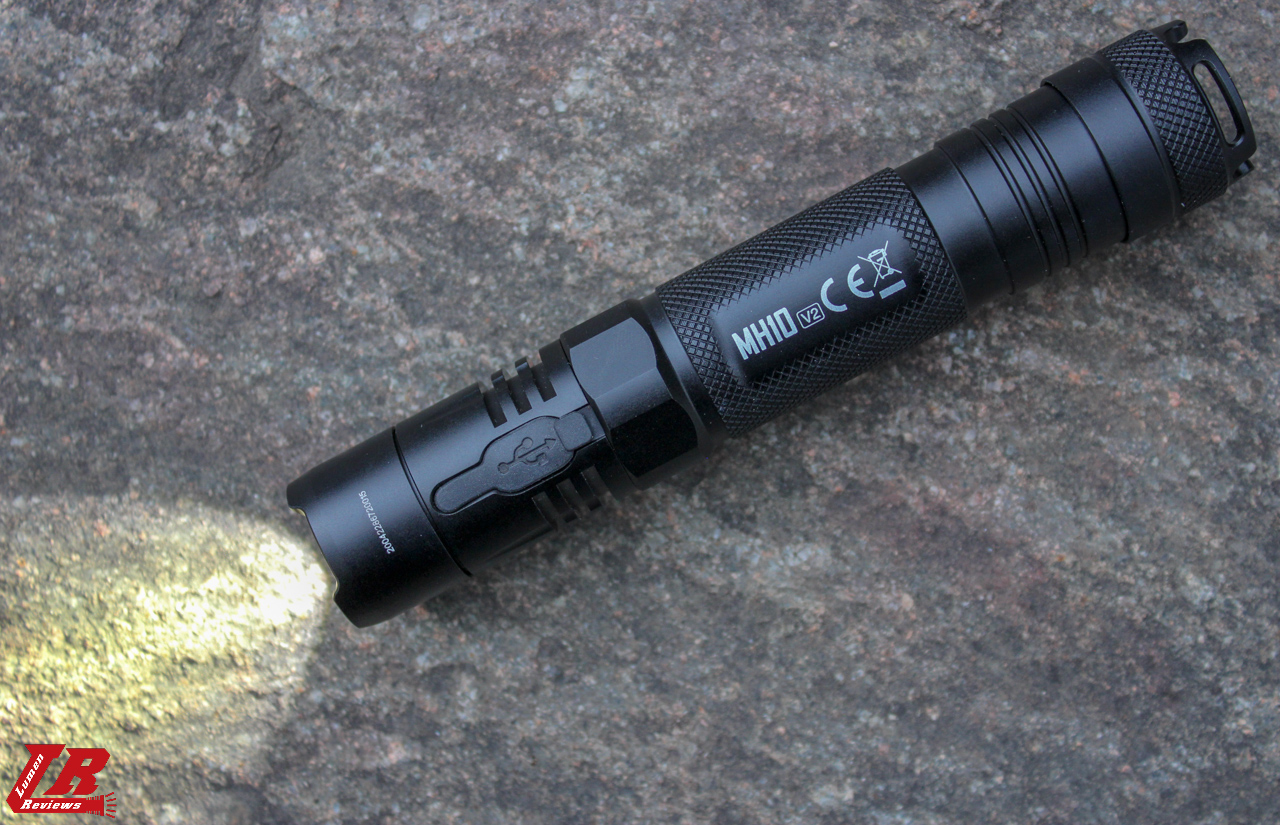
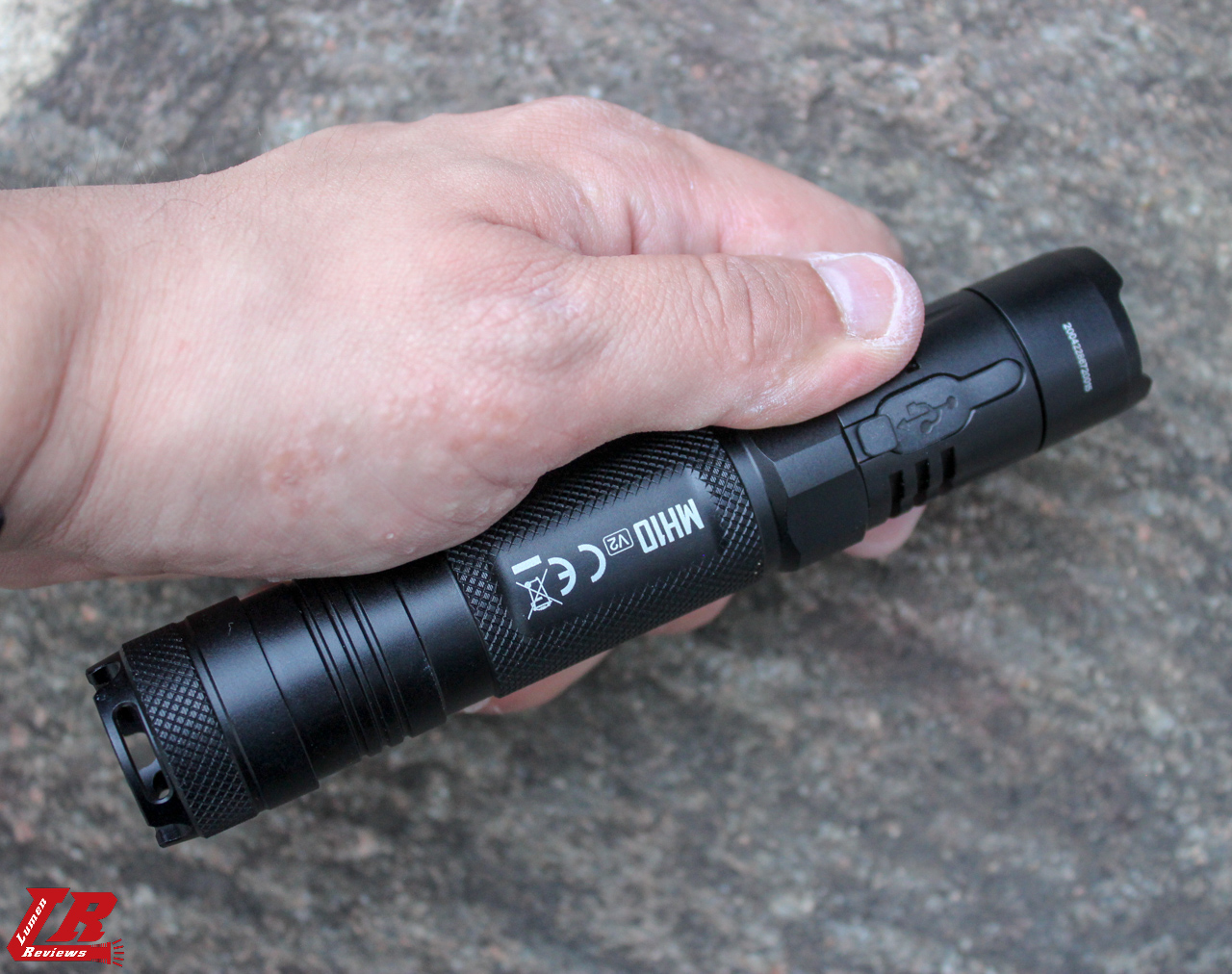
The design of the light is pretty linear, with built in anti-rolling feature


There's a clear lettering indicating that this is the second version of the MH10.
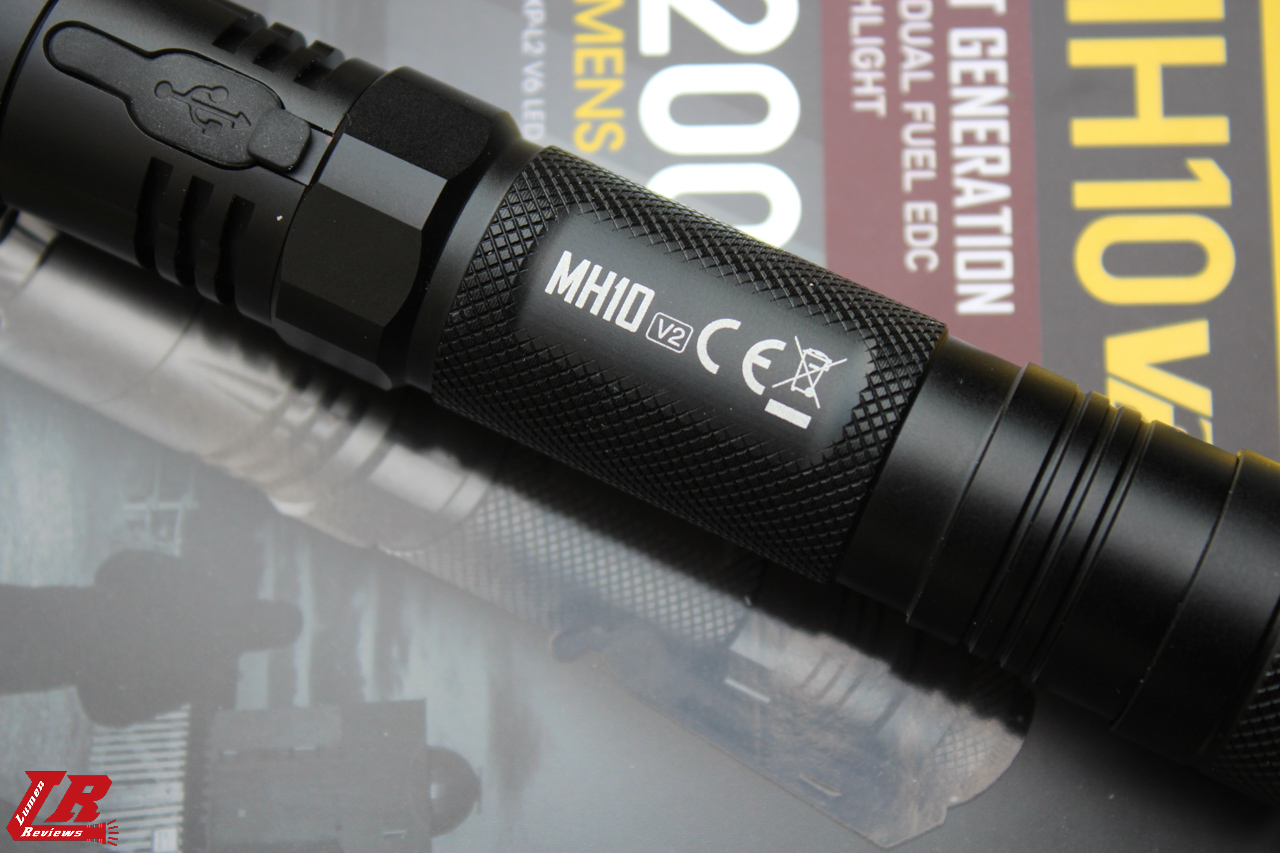
The tailcap is flat and has plenty of space for lanyards.

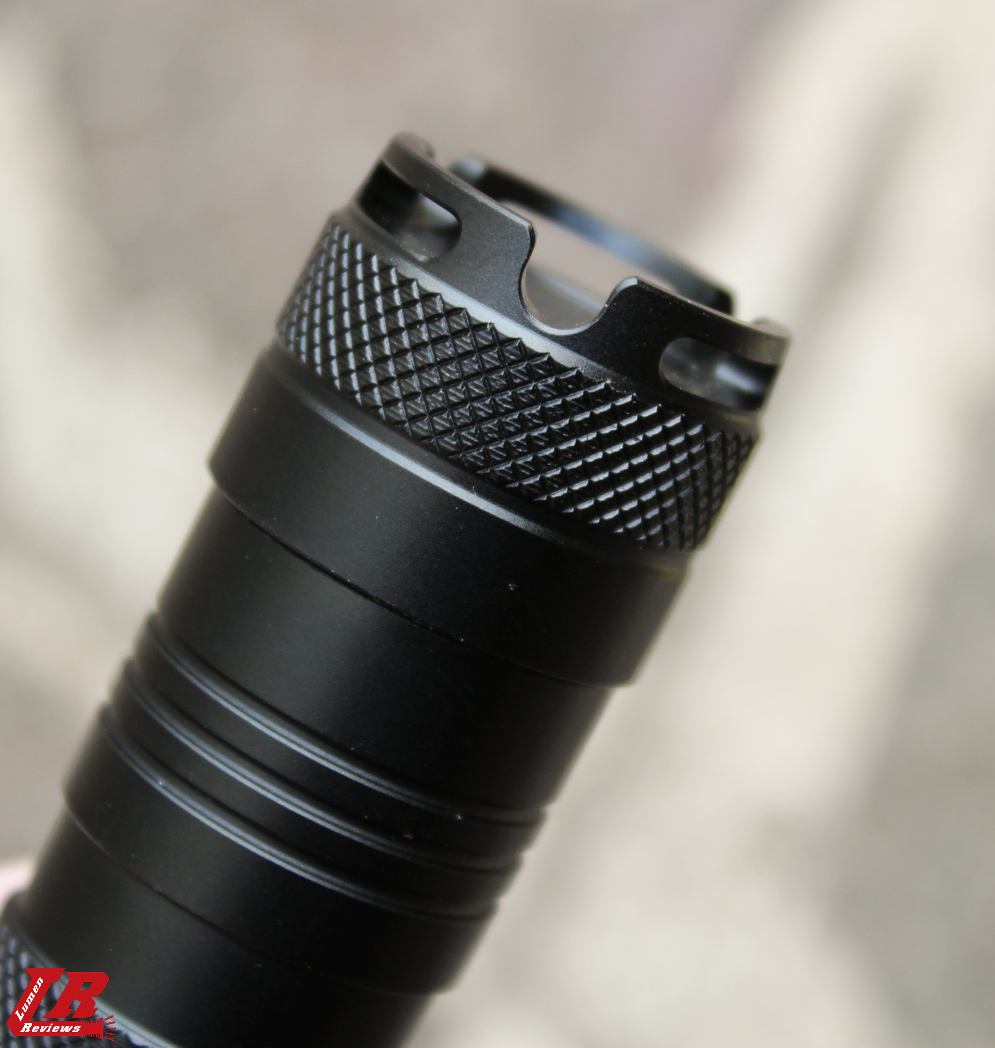
The XP-L2 emitter in the smooth reflector, with double AR coated glass.
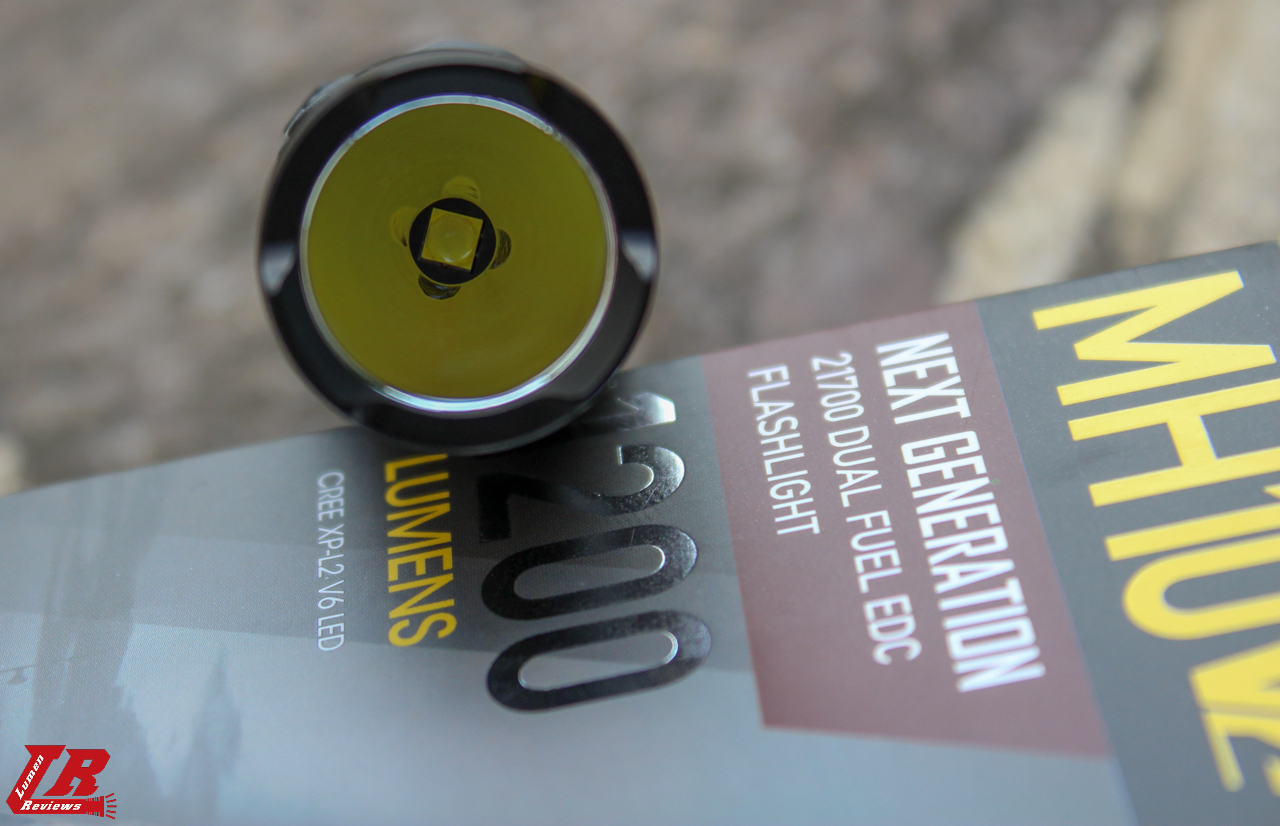
The MH10 V2 is controlled via an electronic side switch, with built in a blue LED battery indicator. The switch protrudes from the body of the light and has a long soft run. The tactile feedback from the click of it is good.

On the other side of the head, the USB charging port, covered by a rubber cover.
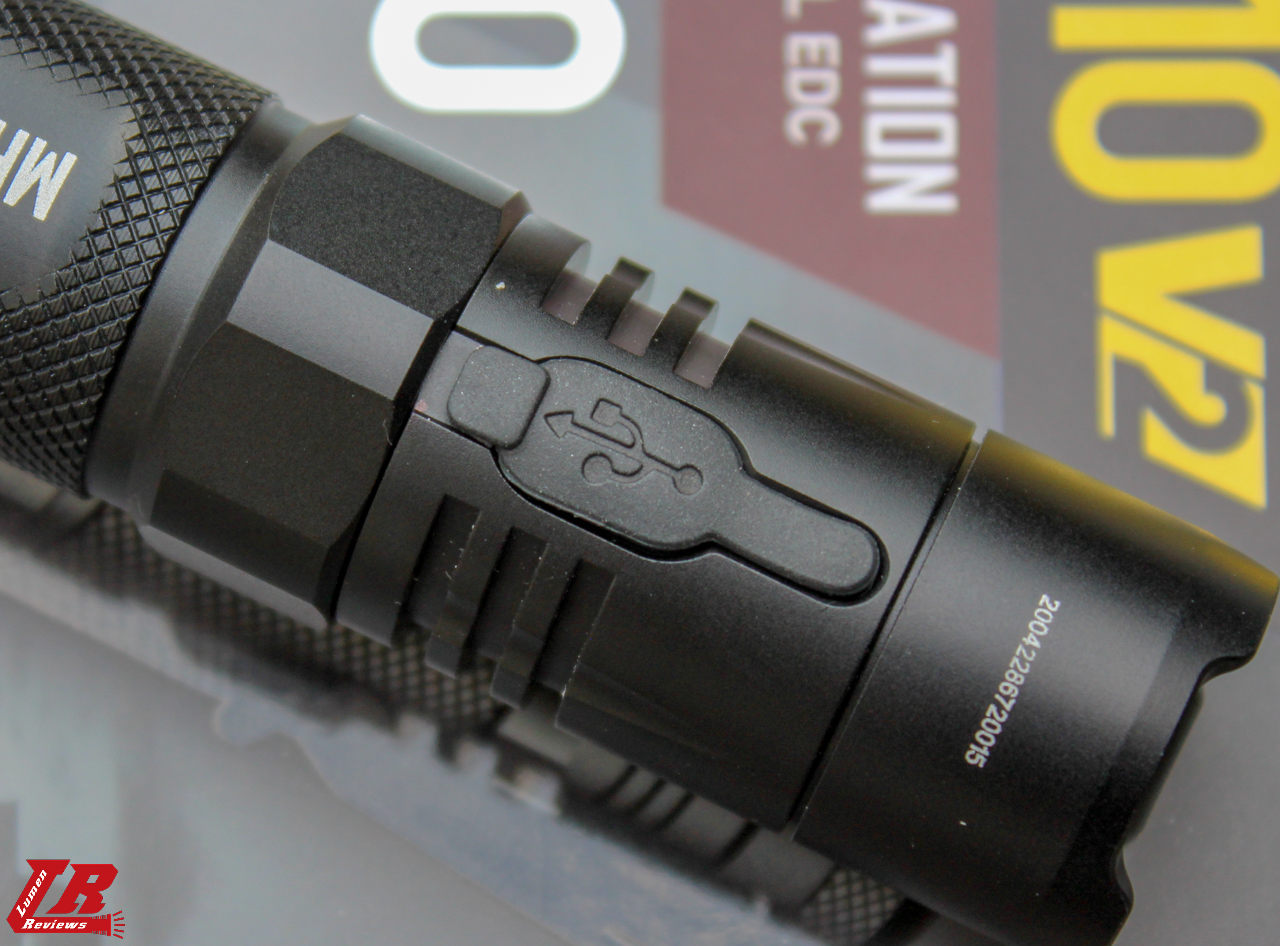
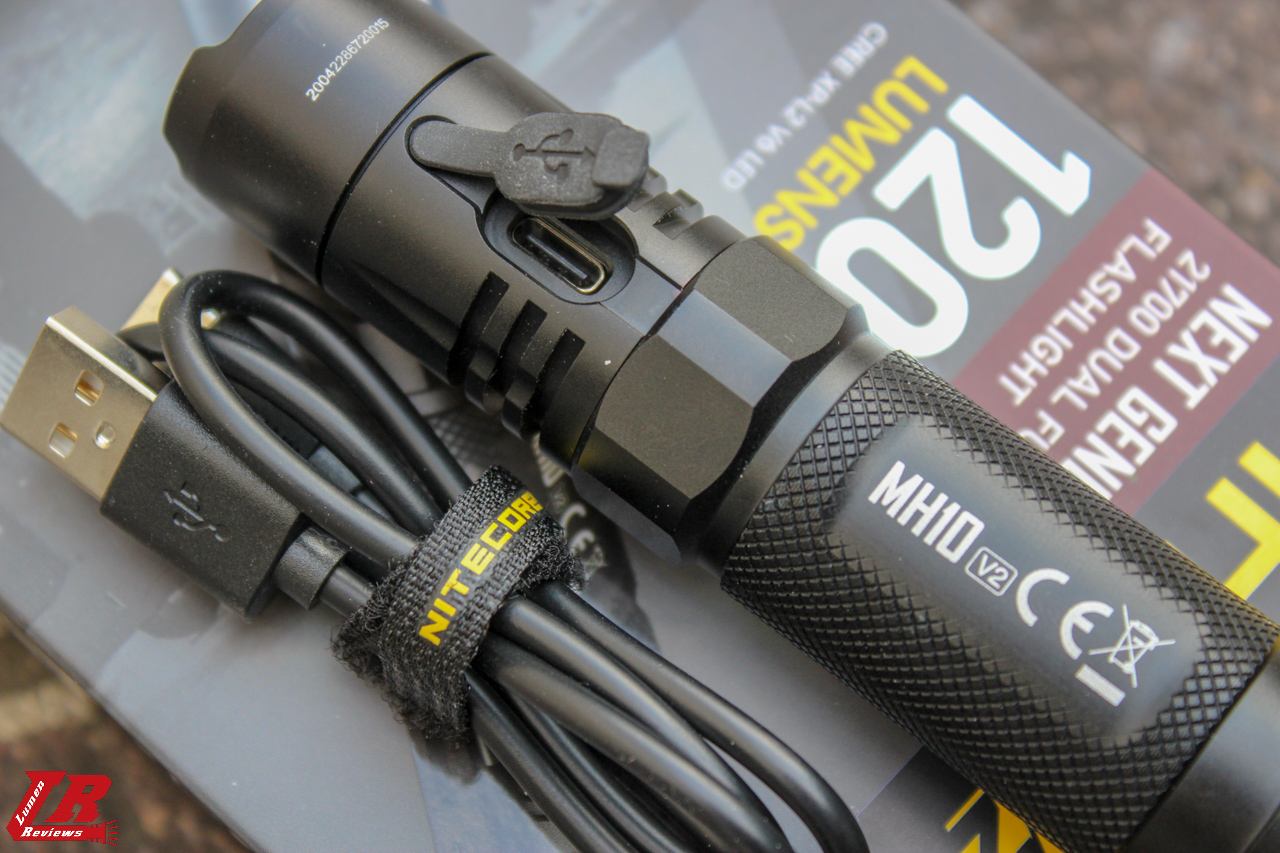
The tailcap is the only part of the light you can take apart, showing anodised triangular cut threads (allowing physical lockout), and a golden spring at the negative pole.
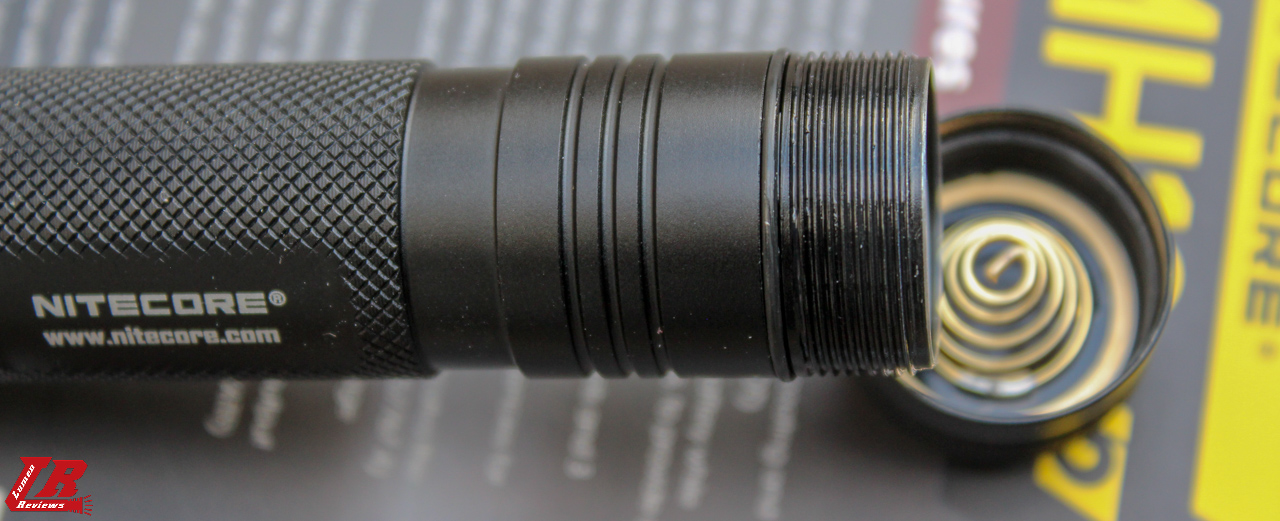
The 21700 battery is inside the light when you open the box, before the first use remember to remove the insulating disk. I like the Nitecore writing engraved on the negative pole of the battery.
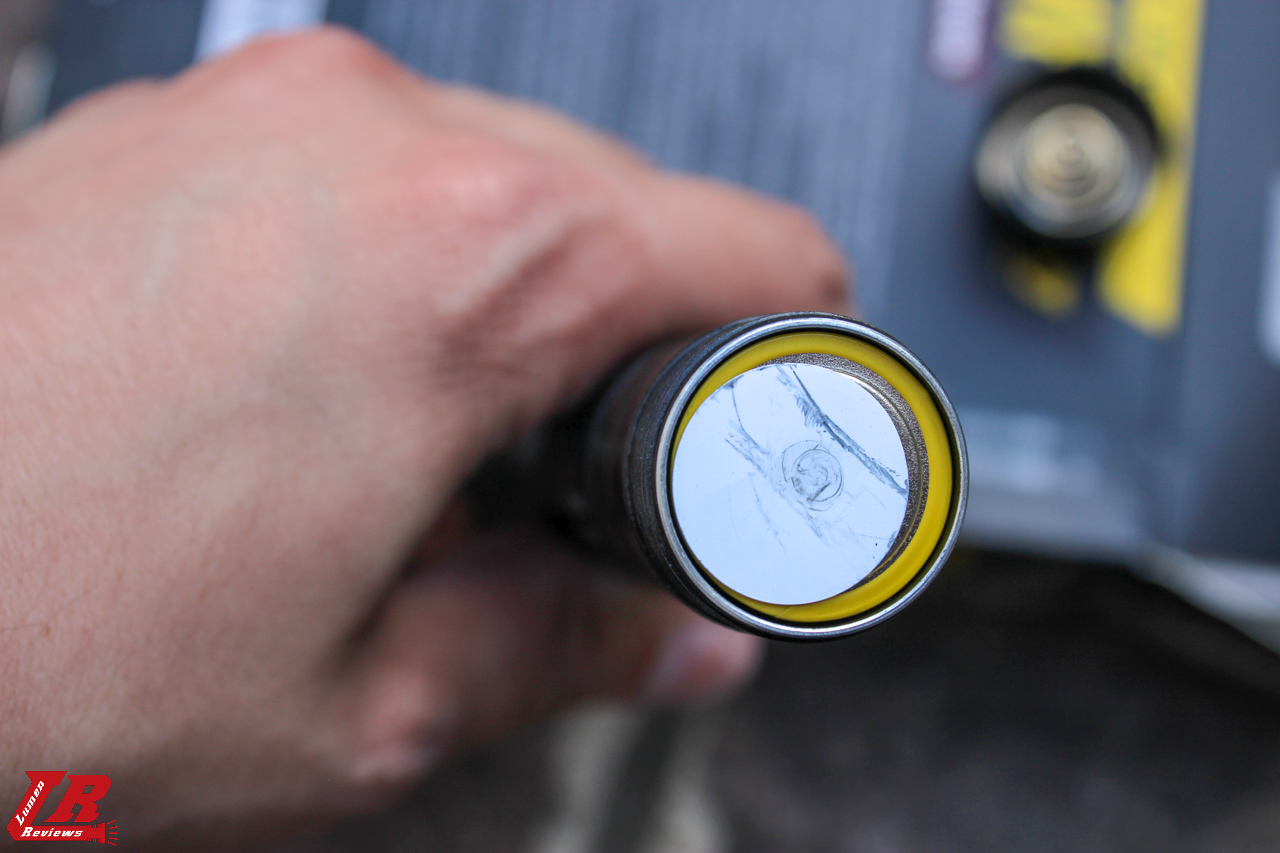
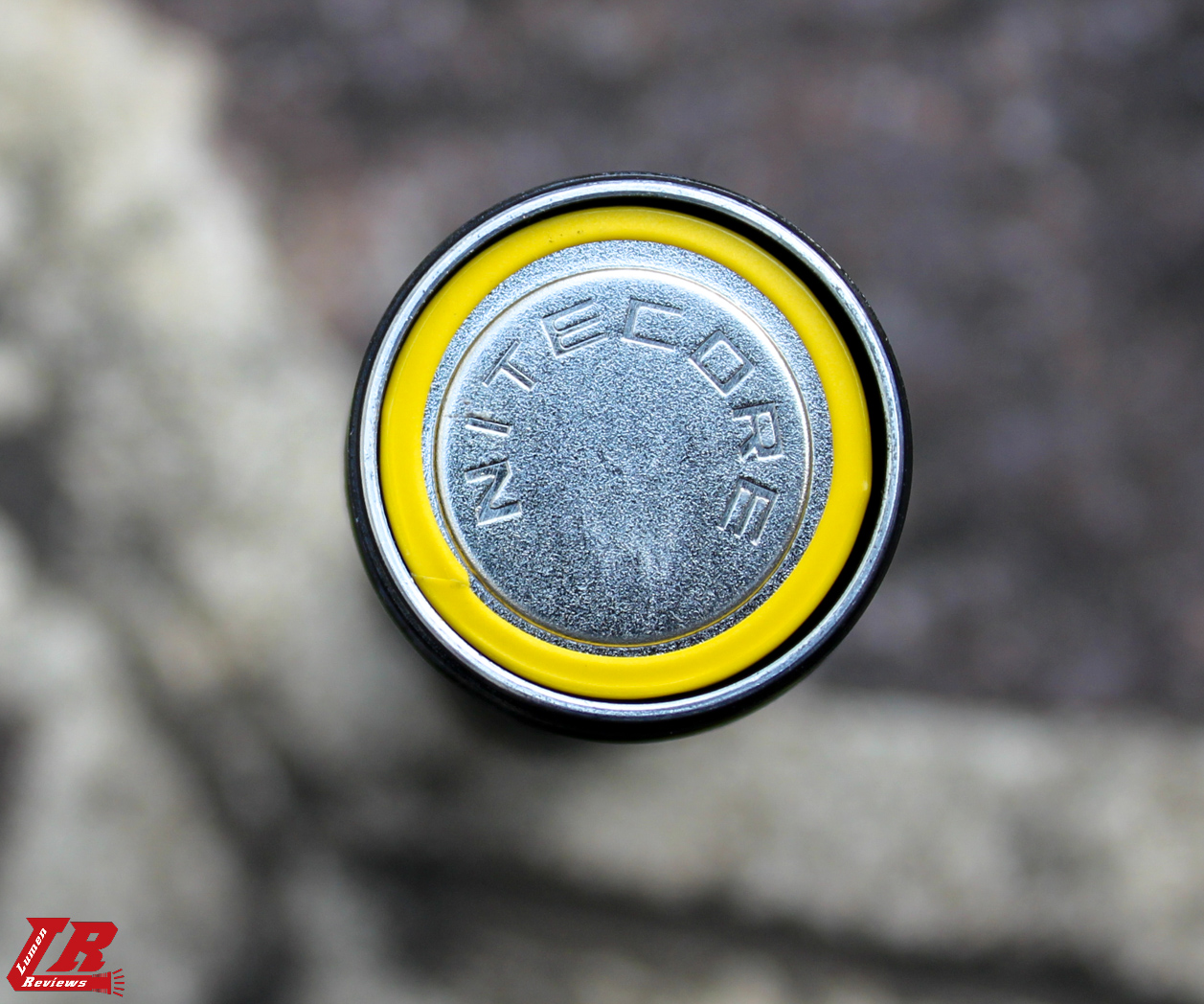
The contact at the positive pole is a golden spring. There is electronic protection againstpolarity inversion.
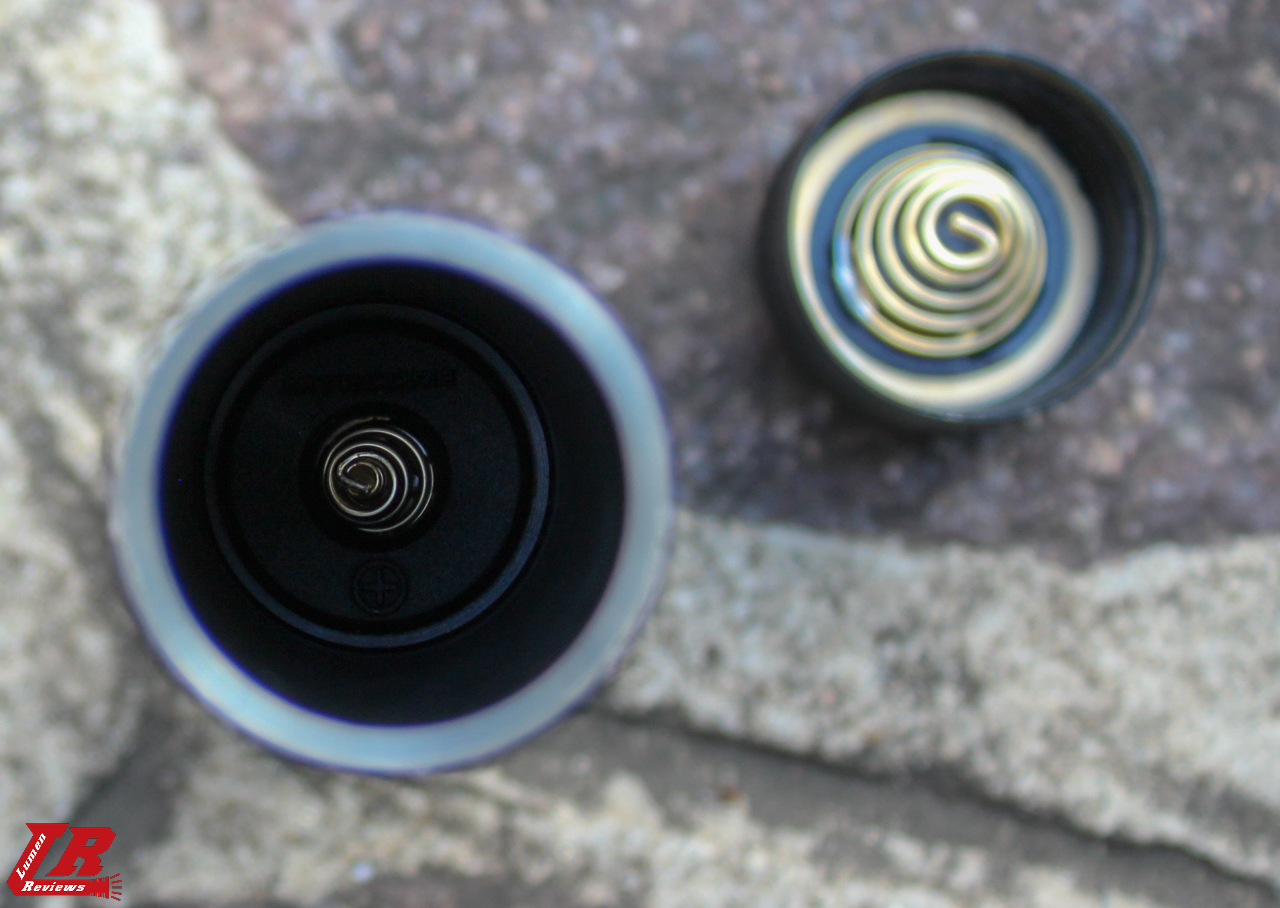
Here's the plastic sheath, with a regulable belt loop and mole compatible.
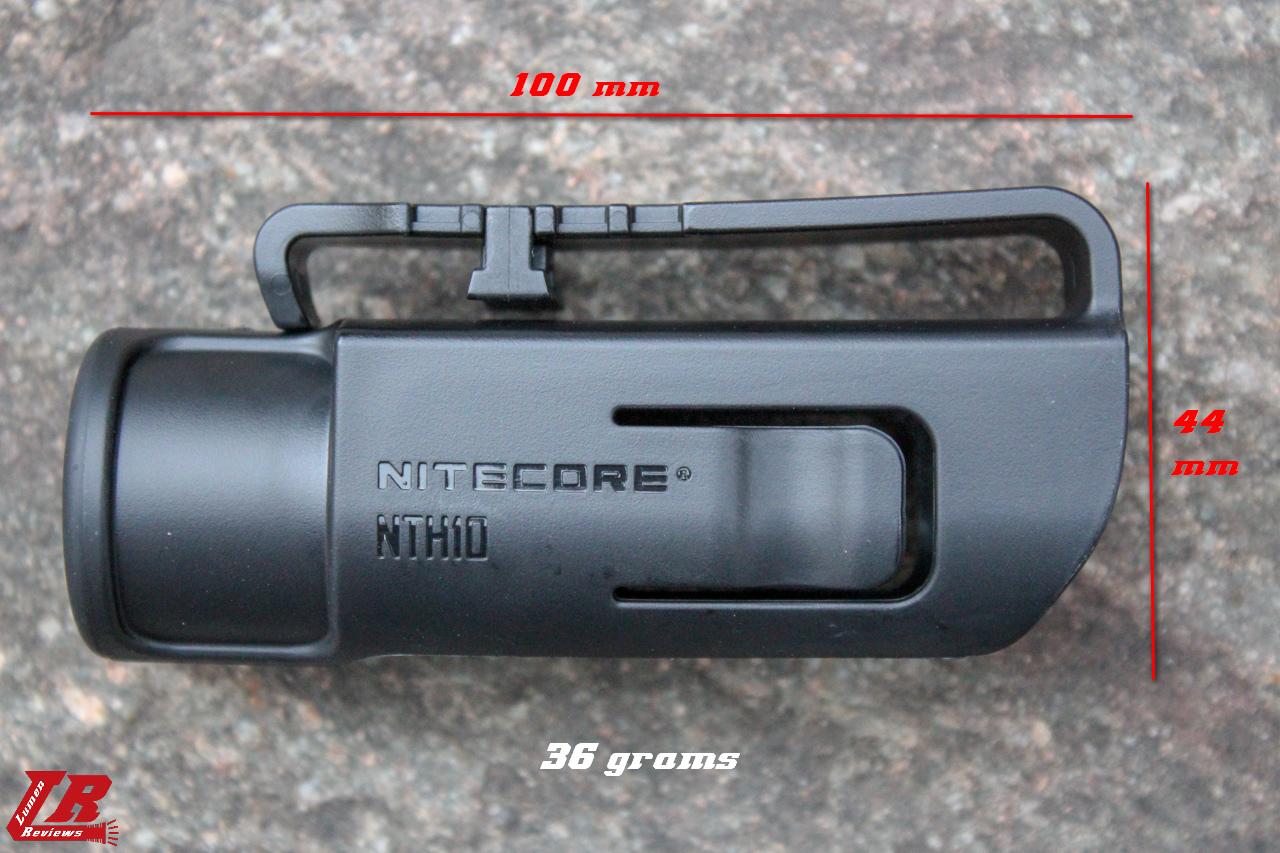
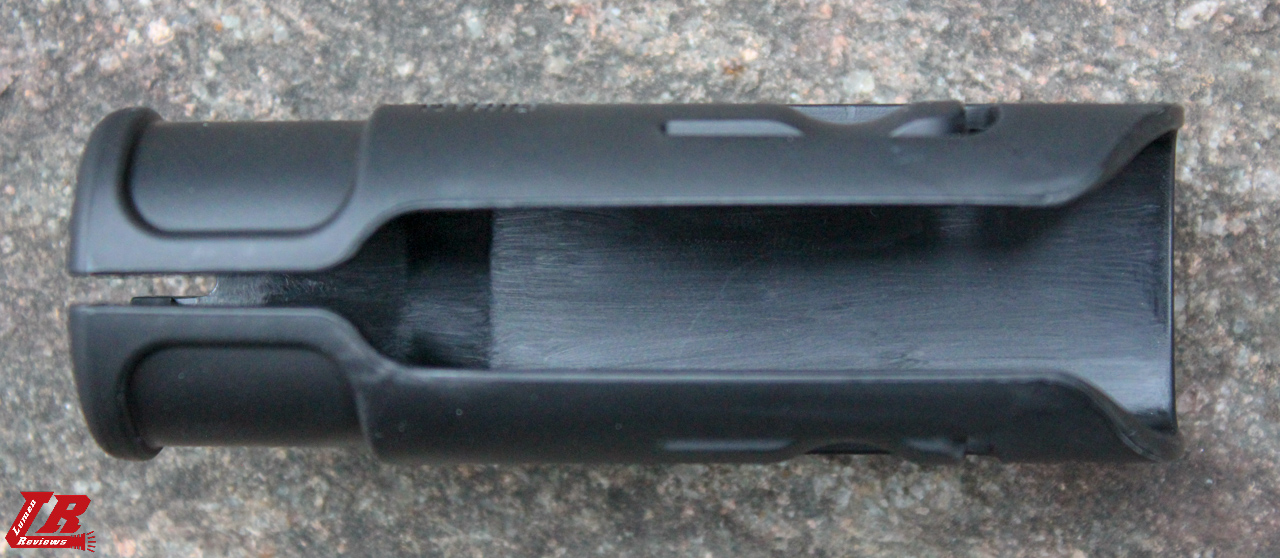
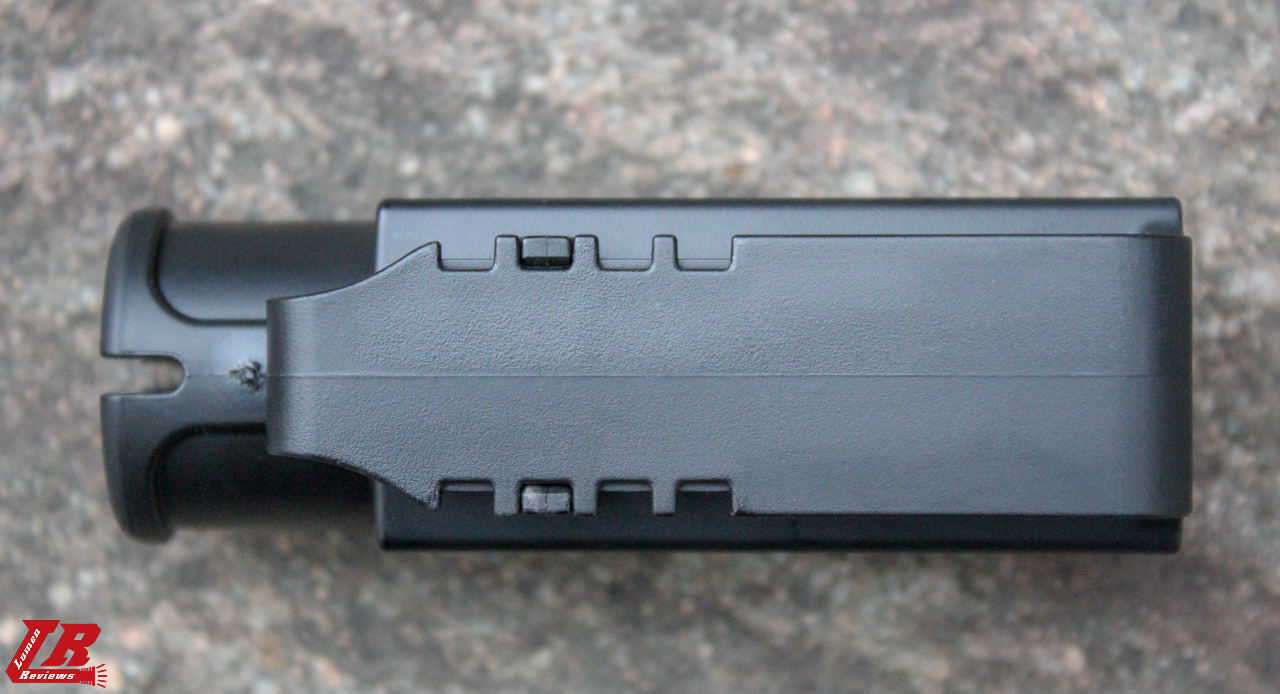
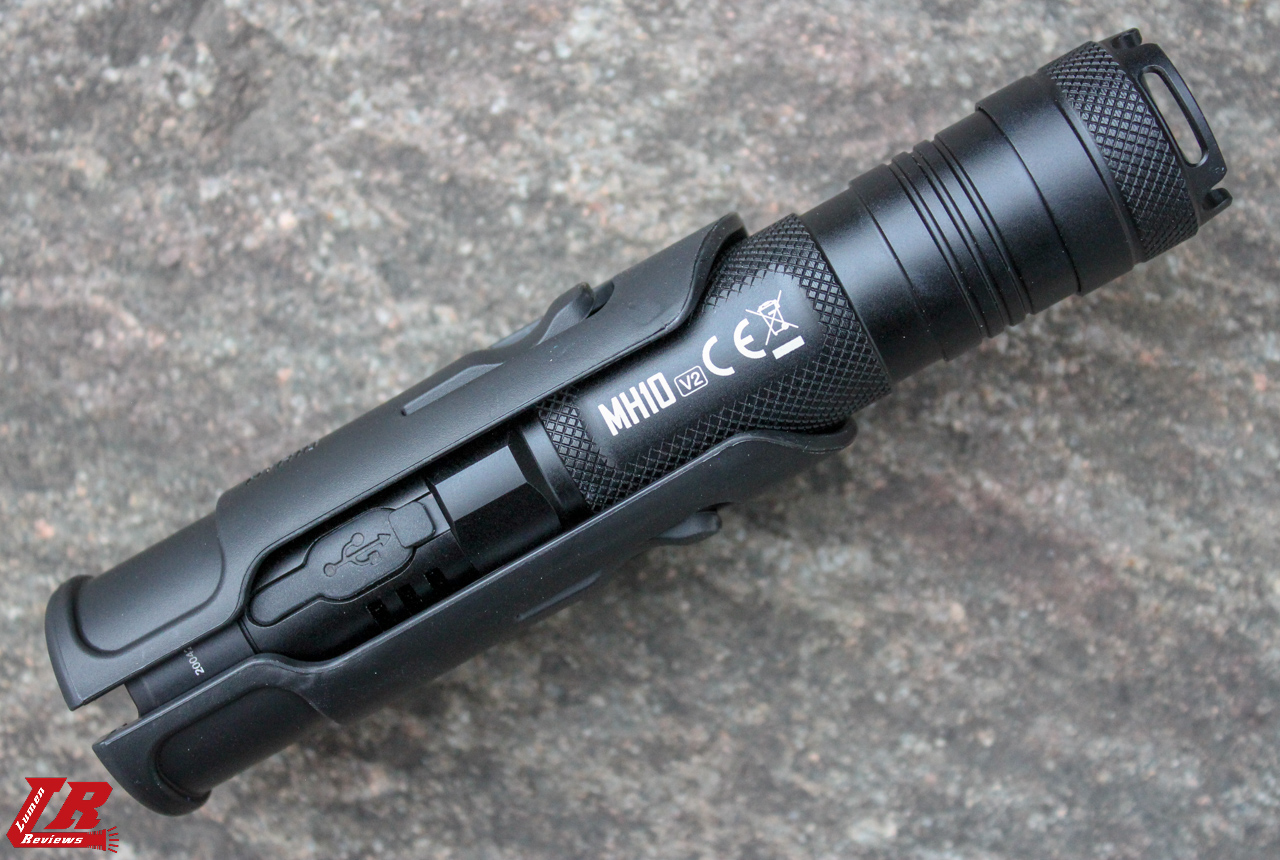

UI
Click once to turn the light on at the last mode, click again to turn the light off.
When the light is on, keep the switch pressed to cycle between the modes (ultralow, low, medium, high, in loop).
Keep pressed while the light is off to access moonlight mode.
Double click when the light is on, to get into strobe mode. When in strobe mode, keep pressed the side switch to cycle between strobe (the kind of strobe that changes frequency while it's on), beacon, sos.
When you insert the battery into the light, the blue LED underneath the side switch will signalling the voltage of the newly inserted battery.
When the light is on, once the battery is under 50% of charge, the blue LED will flash slowly. When the battery has under 10% of charge, it will flash quickly.
To charge the battery simply use the USB-C female port. The blue LED will flash slowly until the battery is fully charged, turning off.
If there is something wrong with the charging process (tailcap not fully screwed on the body, polarity inversion), the blue LED will flash quickly.
Beamshot at 0.5 meters.
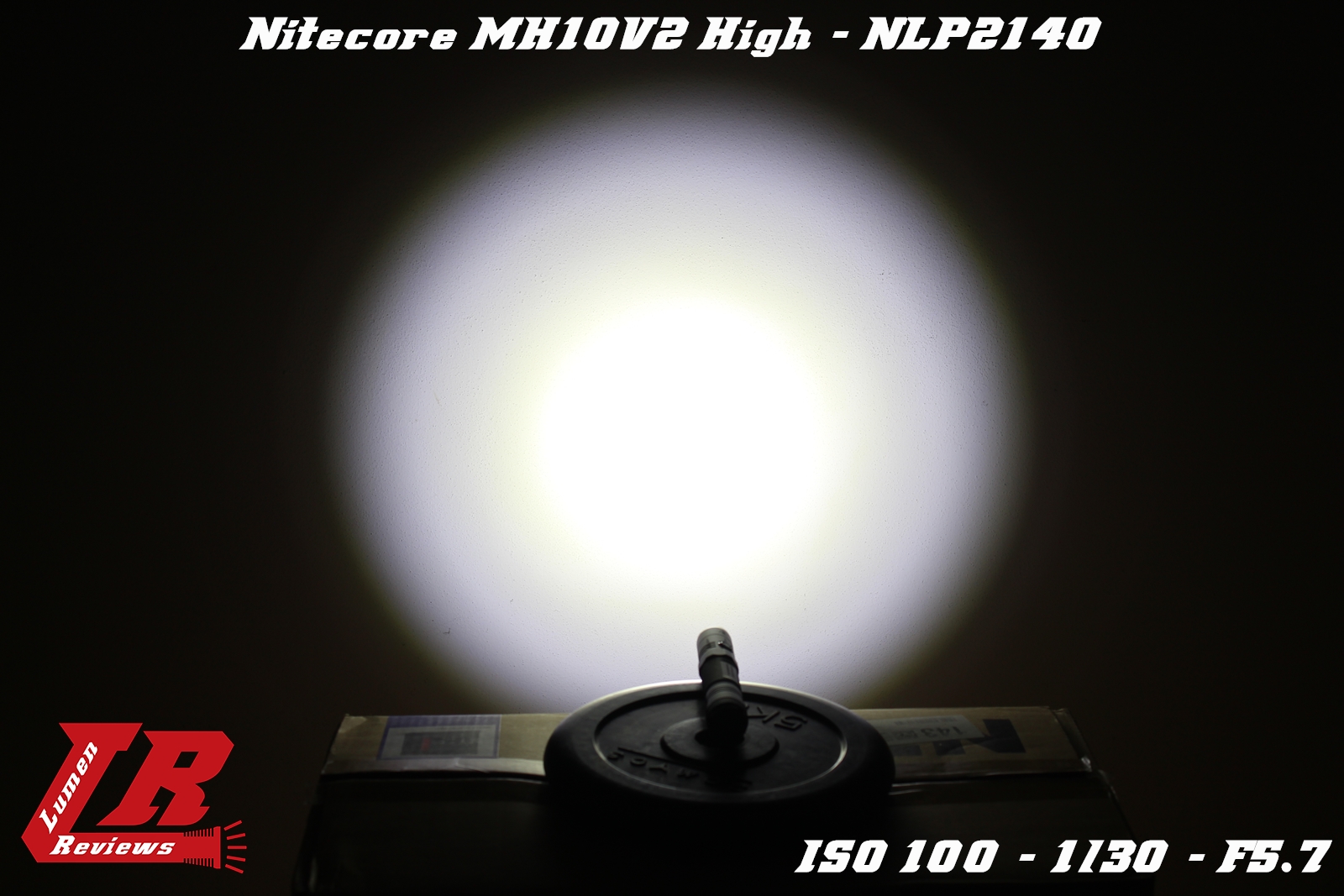
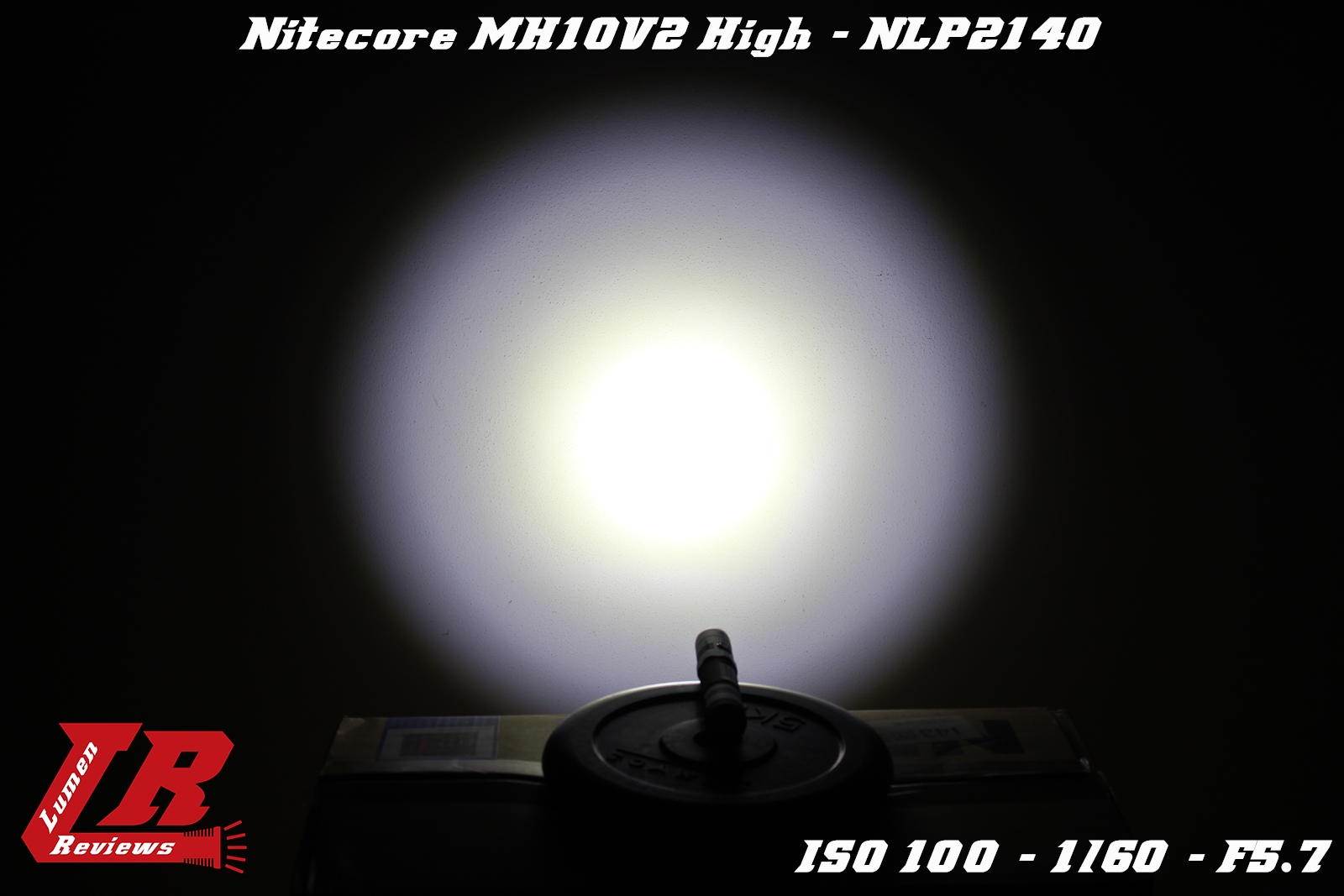
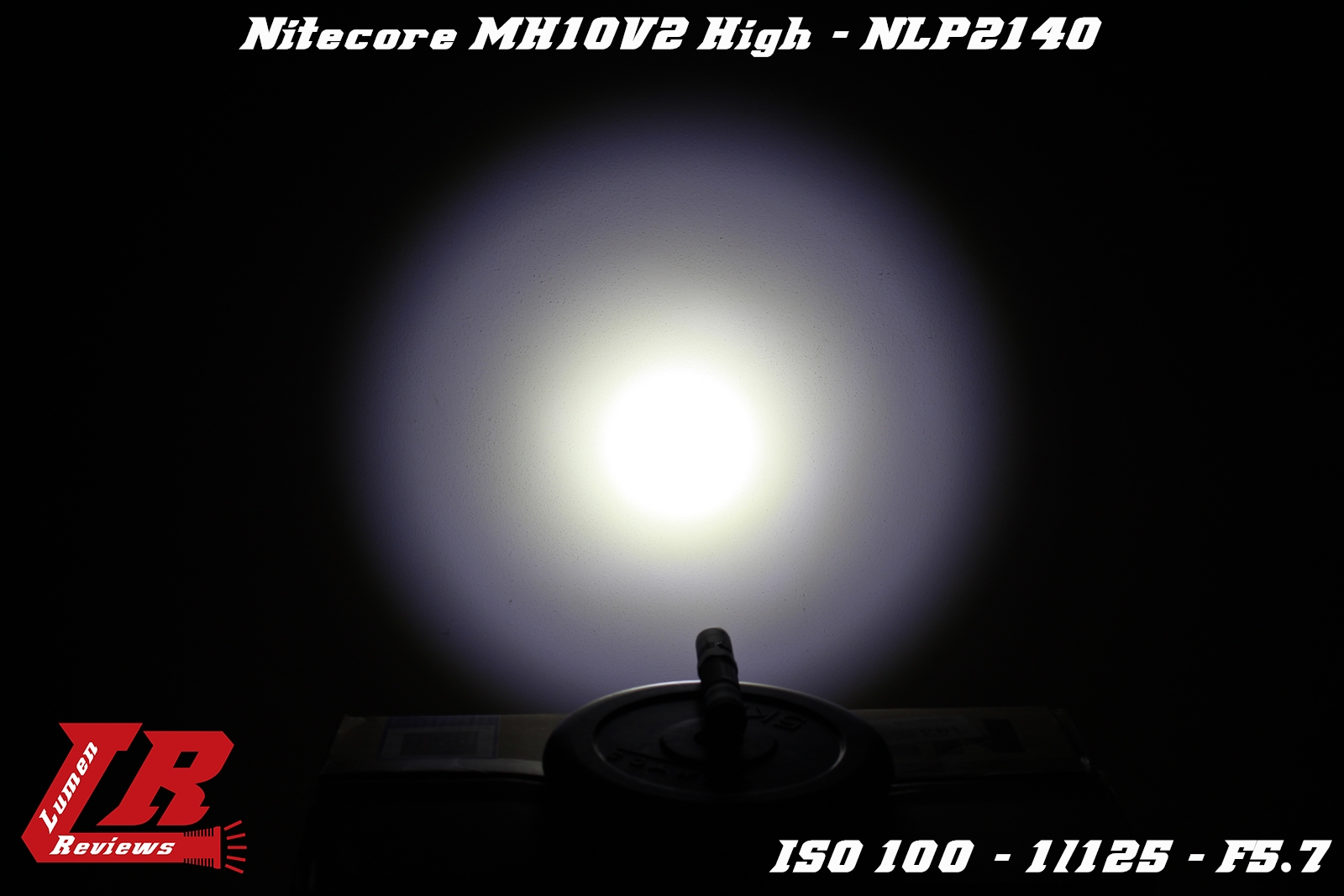
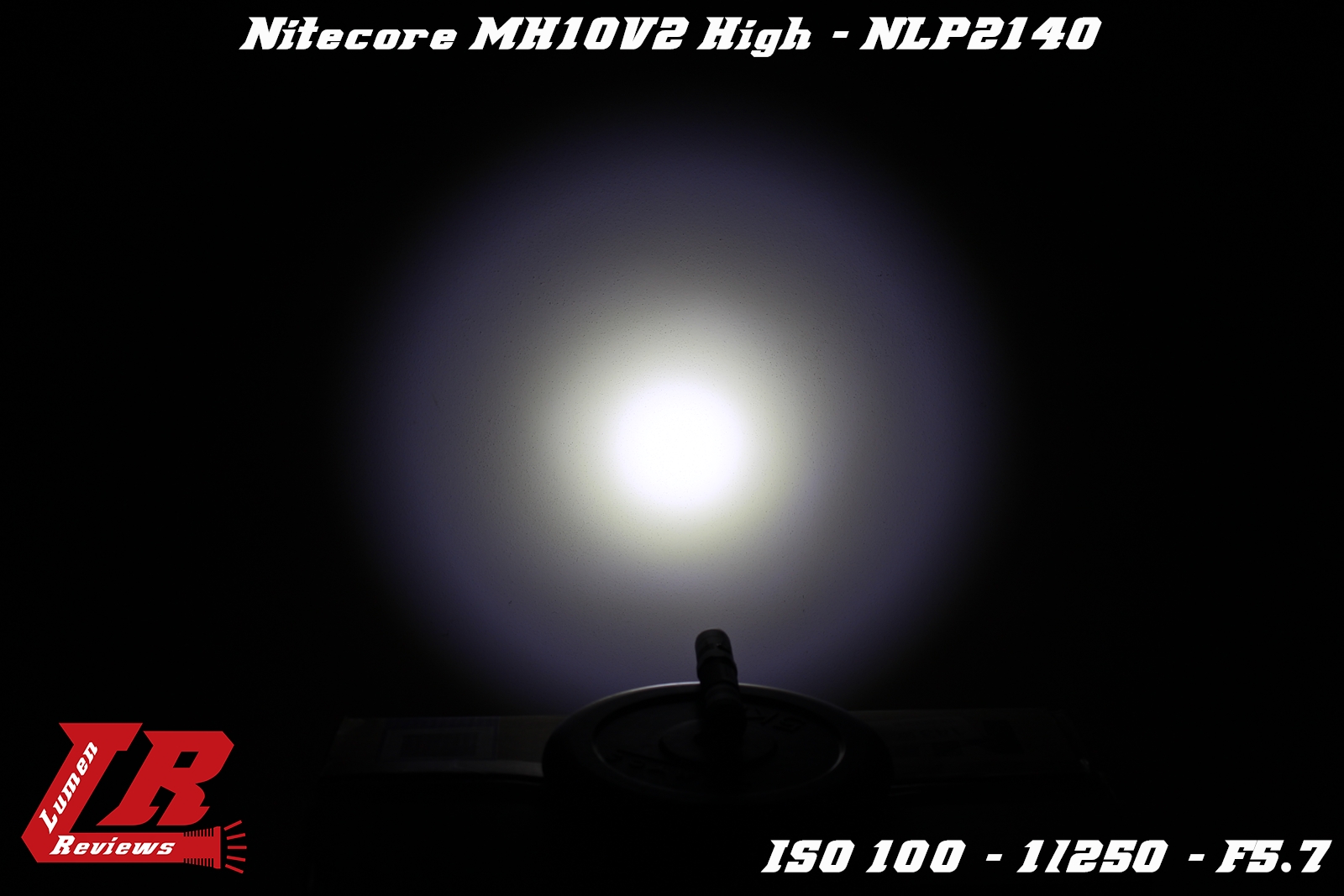
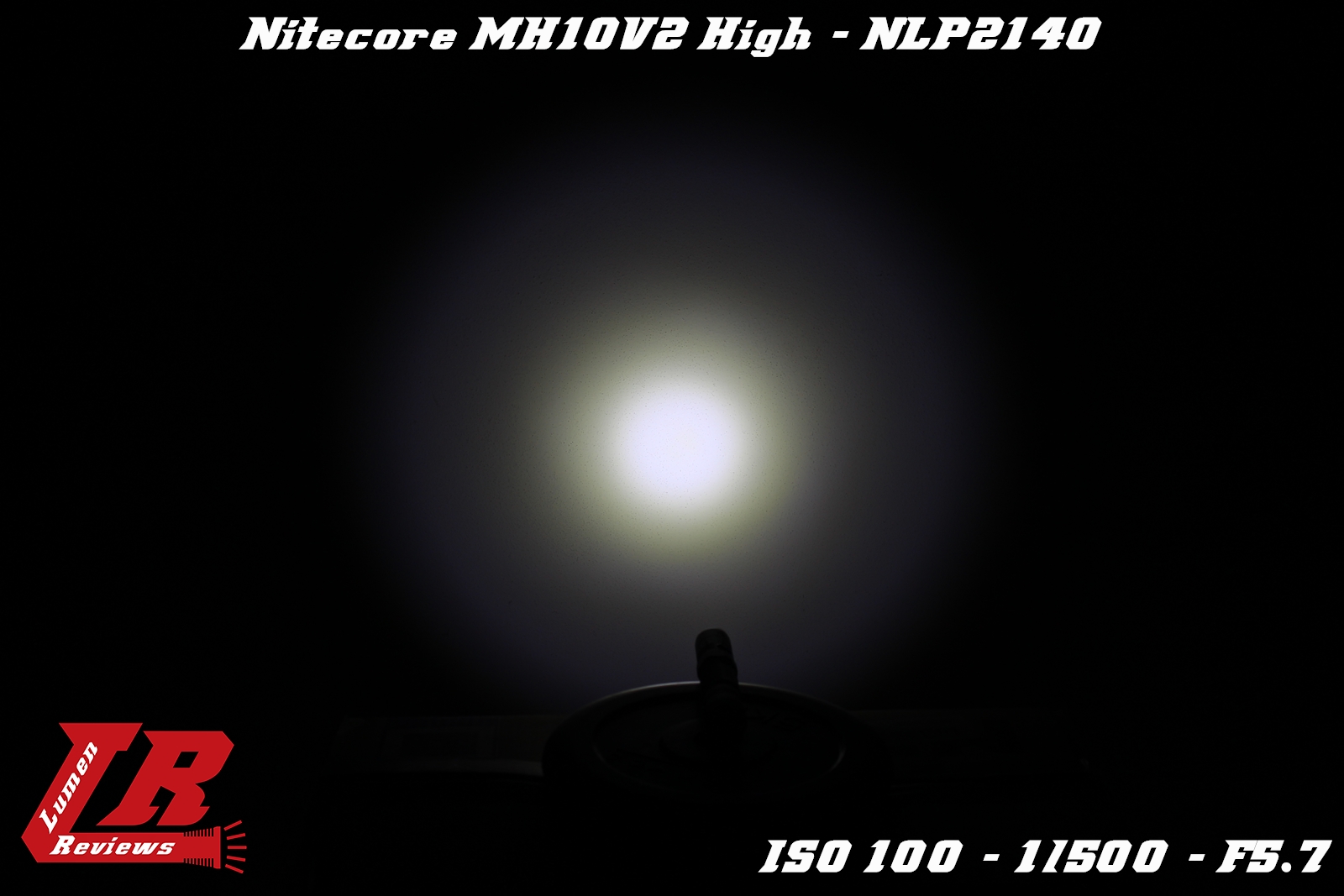
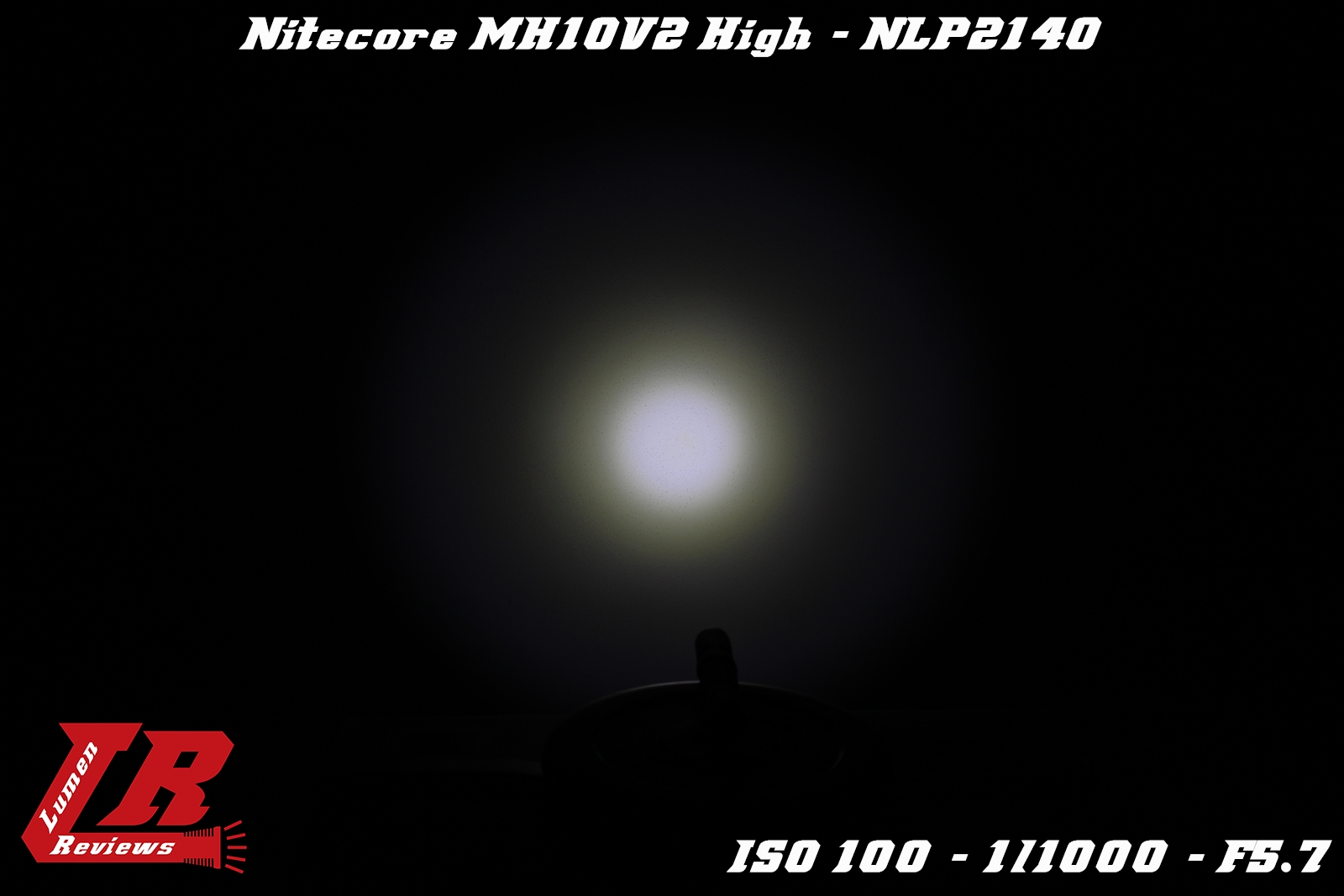
The small reflector, paired with a relatively big emitter, gives a wide beam good for medium to close distances. On my sample the tint is not too cool, and there's a yellow crown with a bit of green around the spot. Only affects wall hunting, in my opinion.
Trees at 100 meters.
Pics will come once the bad weather stops.
Output and runtime
Both tested using the provided Nitecore NLP2170 4000mAh 21700 battery and a Nitecore NL1834 3400mAh 18650 protected battery.
The difference in output on the same level for the 2 different batteries are negligible, and within the error between one measurement and another.
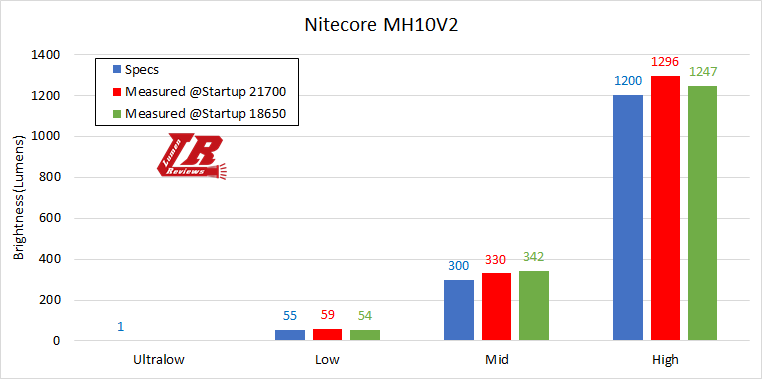
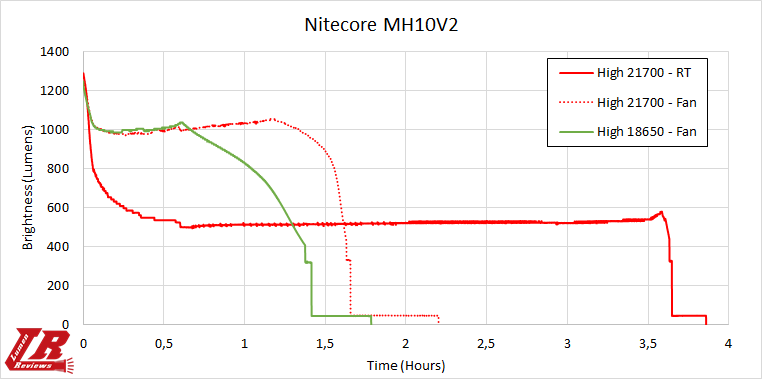
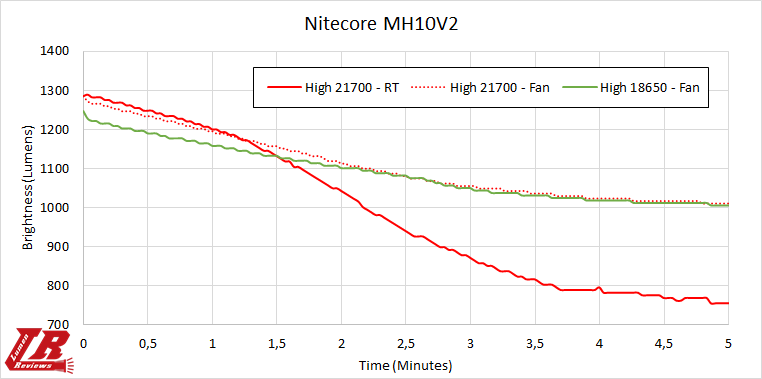
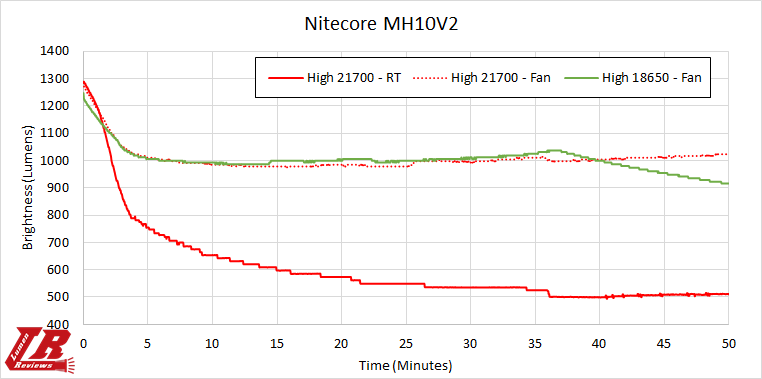
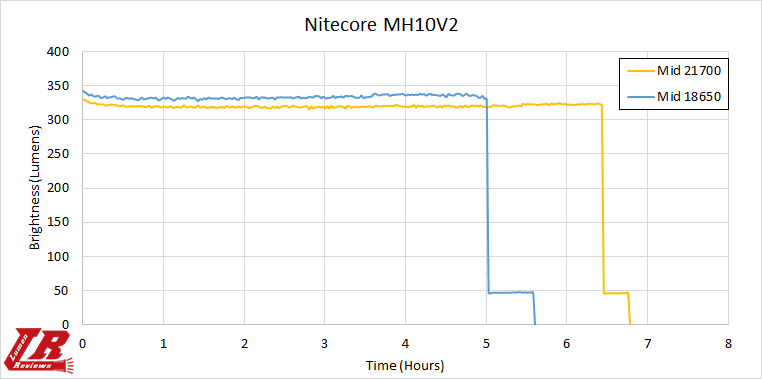
Here's how the light behaves from a thermal point of view, in the first 3 minutes of High mode, starting at room temperature (24C).
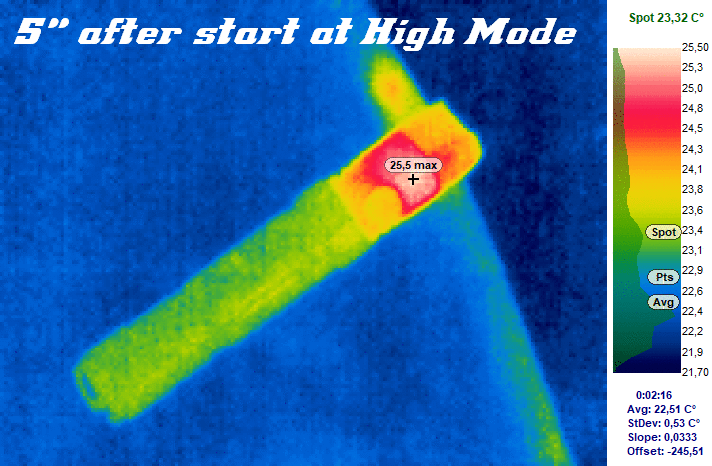
My thoughts
The light is well built and finished.
The tested levels are well regulated. There is a thermal regulation system, and it works well.
I would like to have an additional level around 6-7-800 lumens, because I feel there's quite a jump between the 300 lumens of the mid mode and the 1200 of the high mode.
I like the memory and direct access to last used mode (long press from off). I wish this light had quick access to high mode. For those who might enjoy it, this feature was replaced by a quick access to strobe mode (double click).
I like that the blue LED under the switch now also tells you the level of the battery while the light is on. I would like it to have more "battery stages", for example: No light (battery above 75%), light on (battery above 50%), light flashing (above 25%), light flashing faster (under 25%); or something like that.
The sheath is well made and allows a quick draw of the light. I like that the belt loop is regulable in width, to accommodate belts with different sizes and is MOLLE compatible.
Compared to the original MH10, the light now offers an updated port (from micro USB to USB-C), increased output, significantly increased runtime when using a 21700 battery.
If you find yourself using a flashlight for a long time, or you can benefit from the increased runtime obtained using the 21700 batteries (remember, the one used in the plot comes with the light and has 4000mAh, there are now ones available with 5000mah, 25% of runtime more), the MH10V2 can be a good choice if 4 modes are enough for you.
I'd like this light to come in a Neutral or Warm tint.
Thanks to: AntoLed, Won, Zampa.
The MH10 v2 is a tactical flashlight, equipped with a XP-L2 V6 Cool White emitter, powered by a 21700 battery. The MH10 v2 allows you to charge the battery inside the light though a USB-C port.
The MH10 comes in this box, with holster, clip, manual, spare o-rings, 18650-CR123 adapter and Nitecore NL2140 (a 4000mAh 21700 battery with protection circuit).





The MH10 V2 measures 147 mm in length by 25 mm in width. The weight is 79g empty, and the included battery weights 73 grams, for a total of 152 grams.



The design of the light is pretty linear, with built in anti-rolling feature


There's a clear lettering indicating that this is the second version of the MH10.

The tailcap is flat and has plenty of space for lanyards.


The XP-L2 emitter in the smooth reflector, with double AR coated glass.

The MH10 V2 is controlled via an electronic side switch, with built in a blue LED battery indicator. The switch protrudes from the body of the light and has a long soft run. The tactile feedback from the click of it is good.

On the other side of the head, the USB charging port, covered by a rubber cover.


The tailcap is the only part of the light you can take apart, showing anodised triangular cut threads (allowing physical lockout), and a golden spring at the negative pole.

The 21700 battery is inside the light when you open the box, before the first use remember to remove the insulating disk. I like the Nitecore writing engraved on the negative pole of the battery.


The contact at the positive pole is a golden spring. There is electronic protection againstpolarity inversion.

Here's the plastic sheath, with a regulable belt loop and mole compatible.





UI
Click once to turn the light on at the last mode, click again to turn the light off.
When the light is on, keep the switch pressed to cycle between the modes (ultralow, low, medium, high, in loop).
Keep pressed while the light is off to access moonlight mode.
Double click when the light is on, to get into strobe mode. When in strobe mode, keep pressed the side switch to cycle between strobe (the kind of strobe that changes frequency while it's on), beacon, sos.
When you insert the battery into the light, the blue LED underneath the side switch will signalling the voltage of the newly inserted battery.
When the light is on, once the battery is under 50% of charge, the blue LED will flash slowly. When the battery has under 10% of charge, it will flash quickly.
To charge the battery simply use the USB-C female port. The blue LED will flash slowly until the battery is fully charged, turning off.
If there is something wrong with the charging process (tailcap not fully screwed on the body, polarity inversion), the blue LED will flash quickly.
Beamshot at 0.5 meters.






The small reflector, paired with a relatively big emitter, gives a wide beam good for medium to close distances. On my sample the tint is not too cool, and there's a yellow crown with a bit of green around the spot. Only affects wall hunting, in my opinion.
Trees at 100 meters.
Pics will come once the bad weather stops.
Output and runtime
Both tested using the provided Nitecore NLP2170 4000mAh 21700 battery and a Nitecore NL1834 3400mAh 18650 protected battery.
The difference in output on the same level for the 2 different batteries are negligible, and within the error between one measurement and another.





Here's how the light behaves from a thermal point of view, in the first 3 minutes of High mode, starting at room temperature (24C).

My thoughts
The light is well built and finished.
The tested levels are well regulated. There is a thermal regulation system, and it works well.
I would like to have an additional level around 6-7-800 lumens, because I feel there's quite a jump between the 300 lumens of the mid mode and the 1200 of the high mode.
I like the memory and direct access to last used mode (long press from off). I wish this light had quick access to high mode. For those who might enjoy it, this feature was replaced by a quick access to strobe mode (double click).
I like that the blue LED under the switch now also tells you the level of the battery while the light is on. I would like it to have more "battery stages", for example: No light (battery above 75%), light on (battery above 50%), light flashing (above 25%), light flashing faster (under 25%); or something like that.
The sheath is well made and allows a quick draw of the light. I like that the belt loop is regulable in width, to accommodate belts with different sizes and is MOLLE compatible.
Compared to the original MH10, the light now offers an updated port (from micro USB to USB-C), increased output, significantly increased runtime when using a 21700 battery.
If you find yourself using a flashlight for a long time, or you can benefit from the increased runtime obtained using the 21700 batteries (remember, the one used in the plot comes with the light and has 4000mAh, there are now ones available with 5000mah, 25% of runtime more), the MH10V2 can be a good choice if 4 modes are enough for you.
I'd like this light to come in a Neutral or Warm tint.
Thanks to: AntoLed, Won, Zampa.
Last edited:


